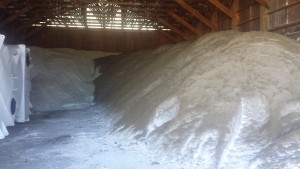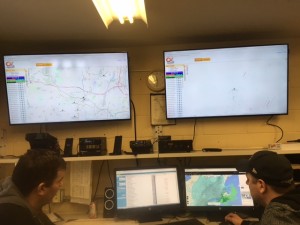WESTFIELD—Snow removal figures have come in for the city, and officials believe that the use of a computerized vendor-management program helped save some money.
According to Casey Berube of the Westfield Department of Public Works (DPW), the city dealt with a total of 20 snow events, with 10 requiring additional “hired” snow plows to help with removal and treatment. These hired snow plows, or “vendors,” were managed through the city’s SnowOPS system, which Berube estimated to save the city about $10,000.
“I think it’s a conservative estimate, just in lost manpower hours in trying to track down the accountability of different vendors, it saved hours in auditing, administration, purchasing,” Berube said. “A conservative estimate of $1,000 per storm in savings due to improved efficiencies.”
The $1,000 savings was in relation to the 10 events that required additional help, thus the $10,000 estimated total savings.
According to Berube, the SnowOPS program not only helped from a potential cost-saving perspective, but also through overall morale of city employees and vendors.
“Our invoice processing and payment improved. We are processing the vendors and payment in one to two weeks, sometimes it was one to two months before,” he said. “Vendors are a lot happier and the administrative staff, across the board, their jobs and lives have become easier.”

A salt storage building filled to the rafters with salt on Ponders Hollow Road, taken over the summer
As far as overall snow removal and winter treatment done within the city, Berube estimated that Westfield had about 50 to 60 inches of accumulation within the 20 total events. In addition, about 5,000 tons of salt was purchased, with some left to “make sure our shed is loaded.” He estimated that about 200 to 300 tons of salt was used per storm.
No sand was used by the city Berube said, which also helped save in cleanup and post-treatment of the product.
Also, he said the DPW was contacted a total of 38 times after their regular hours—7 a.m. to 3 p.m.—for icy conditions, which cost about $25,000 to $30,000, and fuel costs for the fleet was estimated at about $10,000 to $15,000.
Regarding vendor costs, Berube said the cost was about $400,000 for the season.


